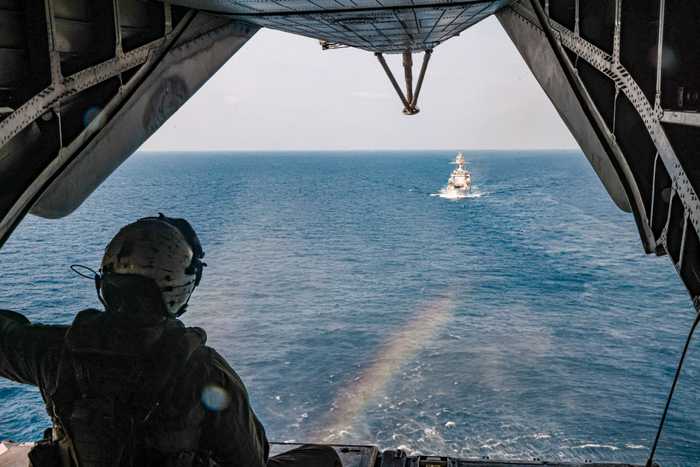Published 15:20 IST, August 27th 2024
US Greenlights $52.8 Million Sale of ASW Sonobuoys to India amid China threat in Indo-Pacific
The U.S. Secretary of State has approved a potential Foreign Military Sale (FMS) to India, valued at $52.8 million, for Anti-Submarine Warfare (ASW) sonobuoys.
- Defence
- 3 min read
Washington, USA: The U.S. Secretary of State has authorized a potential Foreign Military Sale (FMS) to the Government of India, involving Anti-Submarine Warfare (ASW) sonobuoys and related equipment, with an estimated cost of $52.8 million. The Defense Security Cooperation Agency (DSCA) has notified Congress of this proposed sale, emphasizing its strategic importance in light of escalating tensions in the Indo-Pacific region.
The sale includes various types of sonobuoys, such as AN/SSQ-53G High Altitude ASW (HAASW) sonobuoys, AN/SSQ-62F HAASW sonobuoys, and AN/SSQ-36 sonobuoys. These devices, crucial for ASW operations, are deployed from aircraft or ships to detect and track submarines, transmitting acoustic data to operators via radio signals. The Government of India’s purchase also includes technical support, documentation, and logistical services, enhancing its anti-submarine capabilities, particularly when integrated with MH-60R helicopters.
Strengthening US-India Strategic Ties in a Volatile Indo-Pacific
This proposed sale is poised to strengthen the strategic partnership between the United States and India, reinforcing both nations' shared interest in maintaining regional stability and security in the Indo-Pacific. As China’s aggressive actions in the region escalate, the enhancement of India’s ASW capabilities is seen as a critical measure to counterbalance these threats. The sale aligns with U.S. foreign policy and security objectives, helping a key defence partner safeguard its maritime interests.

The Chinese Communist Party (CCP) has increasingly employed military and economic coercion across the Indo-Pacific, asserting unlawful maritime claims, threatening shipping lanes, and destabilizing neighbouring territories. This aggressive behaviour has heightened the risk of miscalculation and conflict in a region already fraught with tensions.
Countering China’s Expanding Military Footprint
China’s One Belt One Road initiative (BRI) has enabled the People’s Liberation Army (PLA) to expand its overseas military presence under the guise of economic development. By leveraging commercial agreements, China has been able to establish military bases in strategic locations, such as Djibouti, where PLA Navy Marines are stationed with armoured vehicles and artillery, despite earlier denials of such ambitions.
The PRC’s militarization efforts are most evident in the South China Sea, where it has constructed several bases, contradicting President Xi Jinping's 2015 promise not to militarize the Spratly Islands. These bases are now used to intimidate Southeast Asian nations and undermine their sovereignty, further destabilizing the region.
Implications for Regional Stability
The sale of ASW sonobuoys to India comes at a critical time when China’s actions threaten not only regional stability but also global maritime security. India’s enhanced ASW capabilities will serve as a deterrent to potential Chinese submarine incursions, thereby contributing to a more balanced military presence in the Indo-Pacific.

The U.S. government has determined that this sale will not disrupt the existing military balance in South Asia. The principal contractors for the sonobuoys will likely include Sparton Corporation, based in De Leon Springs, FL, and Undersea Sensor Systems Inc. (USSI), based in Columbia City, IN. There are no offset agreements associated with this sale, and no additional U.S. personnel will be stationed in India as part of the implementation process.
Updated 15:20 IST, August 27th 2024